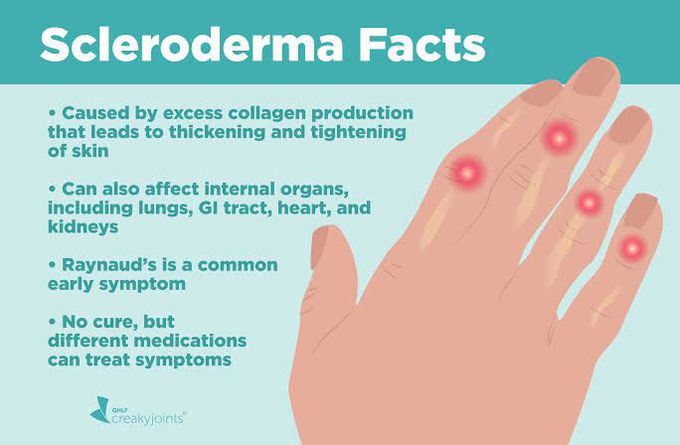


Complications of scleroderma
Scleroderma complications range from mild to severe and can affect the: Fingertips. In systemic sclerosis, Raynaud's phenomenon can become so severe that the restricted blood flow permanently damages the tissue at the fingertips, causing pits or skin sores. In some cases, the tissue on the fingertips may die. Lungs. Scarring of lung tissue can impact your ability to breathe and tolerance for exercise. You may also develop high blood pressure in the arteries to your lungs. Kidneys. A serious kidney complication (scleroderma renal crisis) involves a sudden increase in blood pressure and rapid kidney failure. Prompt treatment of this condition is important to preserve kidney function. Heart. Scarring of heart tissue increases your risk of abnormal heartbeats and congestive heart failure. Scleroderma can also cause inflammation of the membranous sac surrounding your heart. Teeth. Severe tightening of facial skin can cause your mouth to become smaller and narrower, which may make it hard to brush your teeth or to even have them professionally cleaned. People who have scleroderma often don't produce normal amounts of saliva, so the risk of dental decay increases even more. Digestive system. Digestive problems associated with scleroderma can lead to heartburn and difficulty swallowing. It can also cause bouts of cramps, bloating, constipation or diarrhea. Some people who have scleroderma may also have problems absorbing nutrients due to overgrowth of bacteria in the intestine. Joints. The skin over joints can become so tight that it restricts joint flexibility and movement, particularly in the hands.

